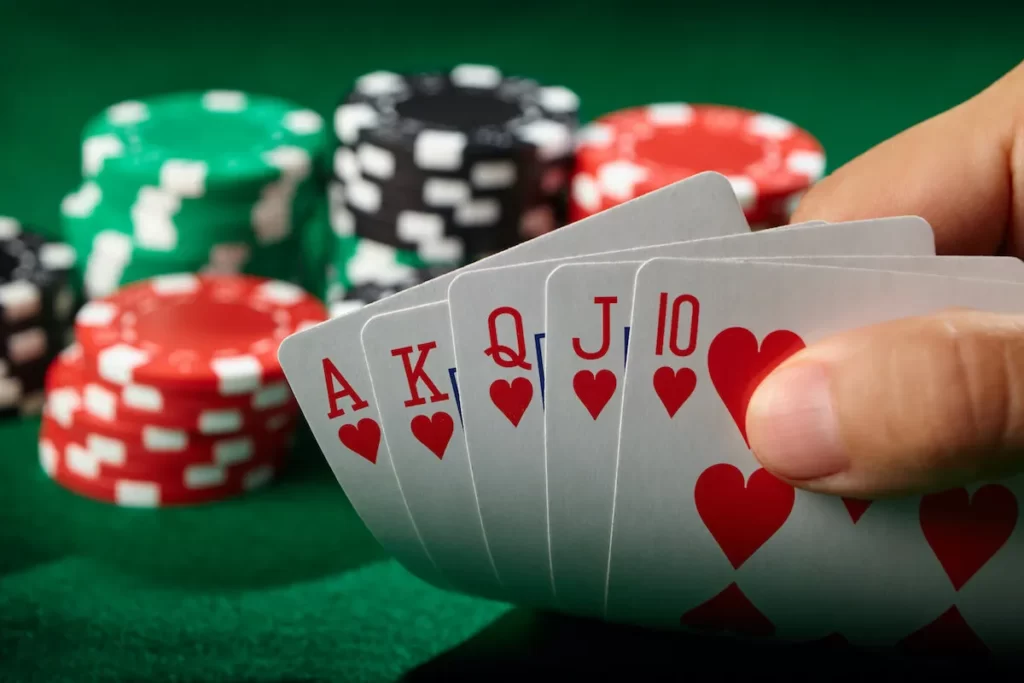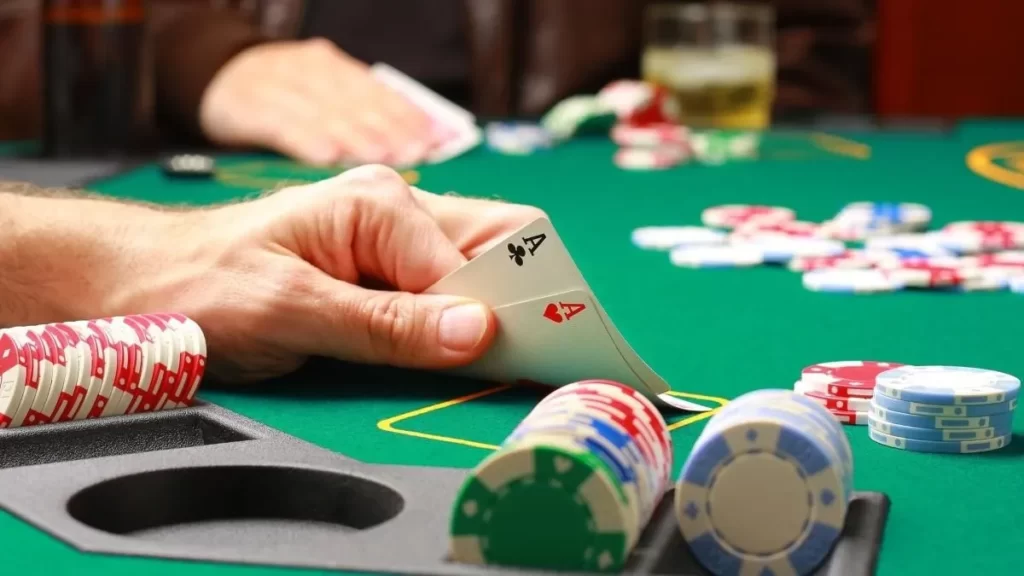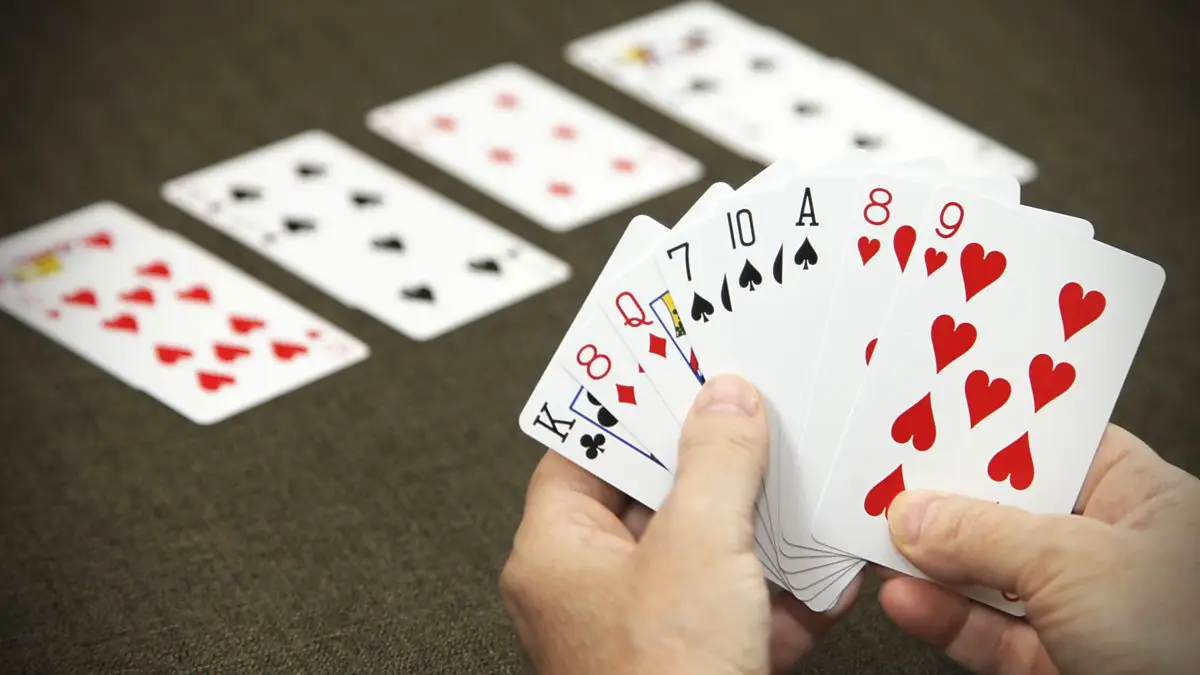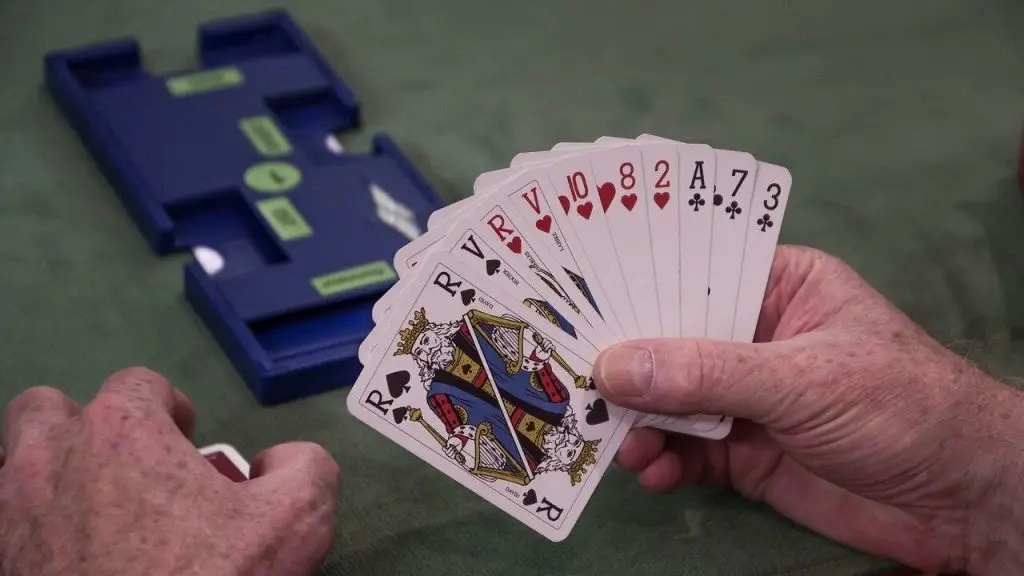When it comes to sports poker, many people imagine something similar to an old movie, where the characters hide their emotions under dark glasses and show cold self-control. But this is a completely different universe, where strategy, analysis and psychological mastery play an important role. They do not rely on luck, but instead focus on tactics, counting and reading opponents. The real adrenaline does not come from betting, but from the moment when the opponent realizes that he has fallen into a carefully set trap.
How sports poker works: differences from regular poker and its rules
How does sports poker differ from the usual classic format played in gambling establishments? The main difference is that there are no money bets during the game. In sports poker, players do not pay extra money for each round; instead, they play with chips that are distributed at the beginning of the tournament. Because of this, the game is more like chess: winnings depend on skill, not on the thickness of your wallet. Sports poker requires a deep strategy, the ability to bluff and calculate your opponent’s moves, and not just make big bets to intimidate.

Unlike gambling entertainment, here every mistake costs a win, but not money. This makes the format suitable for people who want to develop skills and tactical thinking without risking large sums of money. Discipline is not about instant success, but about working on yourself thoroughly.
Rules of sports poker: without further ado
To understand the essence, it is necessary to understand the basic rules. Each participant starts with the same number of chips. The game is divided into rounds, each of which consists of several stages: dealing cards, betting, exchanging cards (in some variants) and finally showing the cards to determine the winner. Participants must make decisions based on their cards and the behavior of their opponents, and it is very important to be able to “read” the emotions and behavior at the table.
Sports poker requires knowledge of hands such as flush, straight and full house. For example, a flush consists of five cards of the same suit, and a straight is five cards in a row, regardless of suit. The game starts with two cards in each player’s hand, after which the community cards are placed on the table and everyone decides how best to use them to create a winning combination. The rules also describe the betting stages, where players can bet, check or raise, depending on their cards and strategy.
It is also important to consider sanctions: in sports poker, there is a strict process that monitors any infractions, including attempts to communicate with opponents about cards or attempts at espionage. These elements add a sporting character to the game: honesty and professionalism are key.
How to get started in sports poker: the path from beginner to master
 Starting your path in the field is not difficult, but it is important to do it consciously and consistently. The first step is to understand the basic rules and card combinations. Experienced players recommend starting with free online tournaments, where you can gain the necessary experience. Competitions allow you to understand the dynamics of the game and feel the rhythm of betting.
Starting your path in the field is not difficult, but it is important to do it consciously and consistently. The first step is to understand the basic rules and card combinations. Experienced players recommend starting with free online tournaments, where you can gain the necessary experience. Competitions allow you to understand the dynamics of the game and feel the rhythm of betting.
The next step is to learn strategies. A beginner should focus on reading books and materials written by professionals. For example, books by Doyle Brunson or Phil Hellmuth reveal many subtleties that cannot be learned from simple descriptions of the rules. You should not immediately participate in serious tournaments; it is better to observe the more experienced participants. Their decisions and reactions can be an excellent learning tool for those who are just starting their journey in the world of sports poker.
Useful tips: what you need to know to win
Professionals often share the secrets of success in the game. Here are some tips to help you get used to it faster and sit at the table with more confidence:
- Read your opponents: It is important to observe your opponents’ behavior. Your gestures, the speed of your decisions, and even your facial expressions can indicate the strength of your cards.
- Bluffing strategy: Bluffing is an integral part of sports poker. However, you should only bluff if you have a clear understanding of your opponents’ behavior.
- Chip management: Good chip distribution helps prevent sudden losses. You should always remember the balance and do nothing if you are not sure about your cards.
- Study the odds: The player must understand the chances of improvement in the hand when the next card is revealed. This will help you make more informed decisions.
- Mental resilience: Sometimes games don’t go as planned, and that’s okay. The most important thing is to keep your cool and think strategically.
- Practice: Without practice, you can’t achieve mastery. Constantly playing, analyzing your own mistakes and studying the strategies of professionals is the best way to become a strong player.
- Analysis of your games: after each game it is important to analyze your actions, decisions and mistakes.
Poker tournaments: from local clubs to global arenas
Sports poker is known for its tournaments, which are held in different formats, from local club meetings to major international competitions. The competitions are divided into different levels of difficulty and each participant can find the option that suits him best.
International tournaments such as the World Series of Poker (WSOP) attract the best players from all over the world and offer huge prizes. In events, not only skill is important, but also the ability to control yourself under pressure. Each tournament has its own characteristics: sometimes there is a time limit, sometimes there is a specific format, such as “knockout”, where eliminating the enemy gives extra chips.
A sports poker tournament is a real test for every player. The judges ensure that all rules are followed and the participants strive not only to win but also to demonstrate their skill level and ability to handle nervous tension.

Strategy, excitement and fun.
 Sports poker combines elements of strategy, psychological struggle and exciting excitement. This is not just a card game, but an opportunity to develop logical thinking and better understand other people. Whether you are a beginner or an experienced player, the direction always presents something new, makes you think and analyze. Those who want to try it should start with small tournaments to experience the atmosphere of the game and understand how it really works.
Sports poker combines elements of strategy, psychological struggle and exciting excitement. This is not just a card game, but an opportunity to develop logical thinking and better understand other people. Whether you are a beginner or an experienced player, the direction always presents something new, makes you think and analyze. Those who want to try it should start with small tournaments to experience the atmosphere of the game and understand how it really works.
 en
en  ru
ru  de
de  ar
ar  es
es  nl
nl  hi
hi  fr
fr  it
it  pt
pt  el
el 










